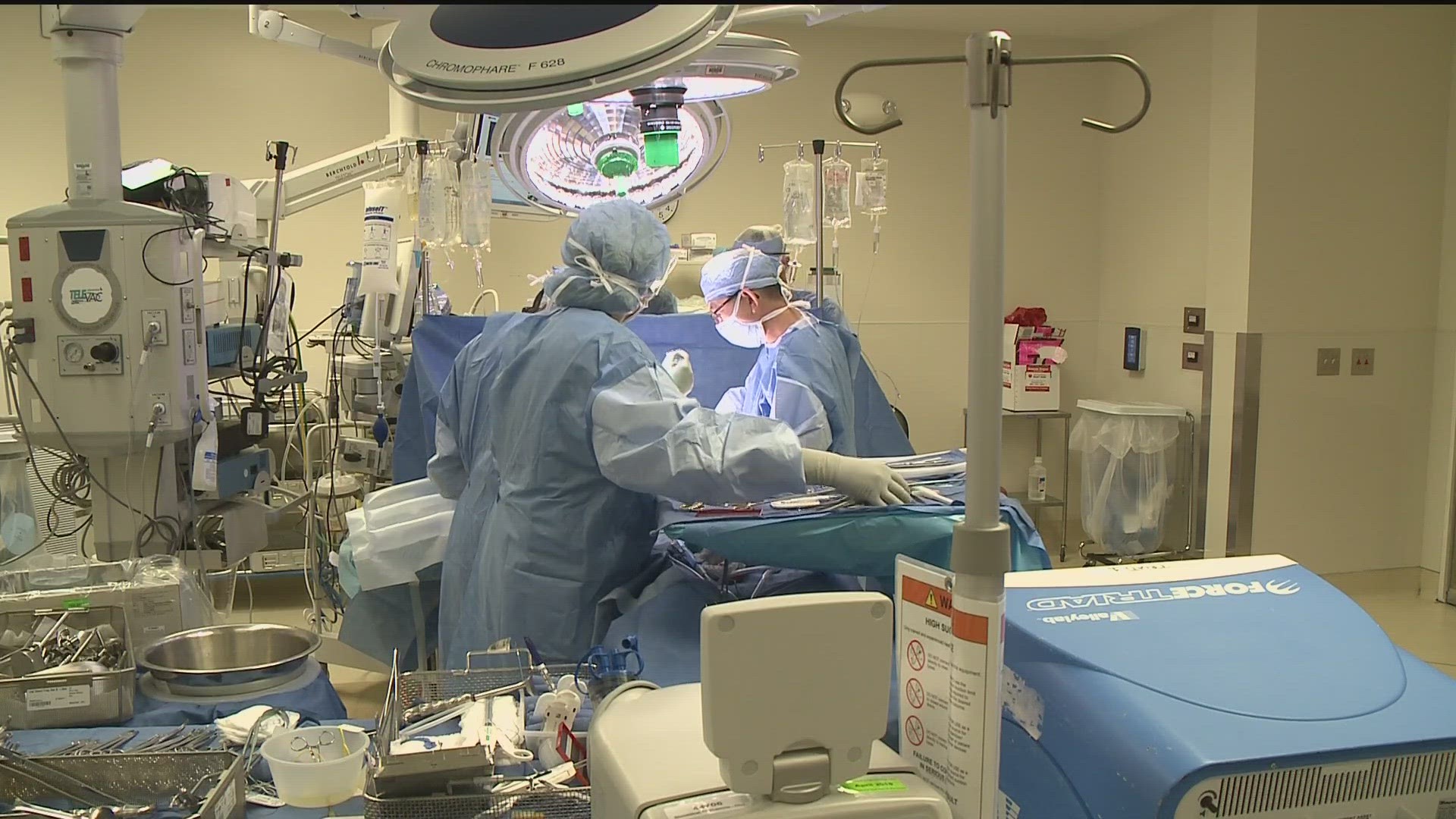ATLANTA — Every gunshot, every car accident, every trip and fall that results in a traumatic injury is being tracked in Georgia. But whether people live or die after those incidents depends mainly on where they live.
As a result, the state started using new technology to give everyone their best shot at survival. The new system will benefit people such as Raidenne Slaughter, herself the victim of a serious car accident a year ago.
"Some people can walk away with very few injuries, and some people are just broken," Slaughter said. "I was one of those people who was completely broken."
After her crash, Slaughter had a concussion, broken nose, cracked ribs, shattered femur and suffered an aortic dissection, which she noted people rarely survive. But despite the long road to recovery, she said the moment that worried her most was right after the crash.
"I was scared before the impact...and then I was scared when they said they were going to take me to Grady because I was wondering, what's wrong?" she said. "What's going on with me that I needed to go to Grady?"
The ambulance passed three other hospitals on the 30-mile trip to Grady.
"If it weren't for the access to a level one trauma center, I wouldn't be here. And I want everyone to have that kind of care," she said.
That's why the Georgia State Trauma Commission is working to make access to level-one trauma centers a reality for everyone. Executive Director Liz Atkins said Slaughter survived because everything in her care went right. But she added that too often, in rural or underserved areas of the state, that's not the case.
"What went right is almost more important than what went wrong," said Executive Director Liz Atkins, adding later, "We want to try and close that gap as best we can."
Unfortunately, that gap has widened with the fairly recent closing of Atlanta Medical Center.
"When you take a whole center out of the system, where do the patients go," Atkins explained.
To try and understand that question, the state started tracking traumas. The trauma commission will use that data to conduct training, purchase equipment, and share resources with hospitals nationwide.
"It can save lives. We need to figure out how we can come together, how do we connect all the dots to keep everybody safe," Atkins said.
To do that, the commission is partnering with technology company ESO.
"We specific locations," Garrett Hall, Senior Director of Hospital Programs at ESO, said, adding later, "Why did we have this huge spike, an increase in motor vehicle collisions? Was it weather? Was it something that we could prevent?"
Hall explained that hospitals in Georgia could use that information to change the way people in the state are cared for.
"This is what the commission's doing with tax dollars. It's something that I will say I'm super proud of because we don't always see government using tax dollars that will actually make a difference to save people's lives," Hall said.
Back at work herself, Slaughter said the commission's work is vital.
"Before this happened, I didn't even realize, I had no idea how important it was to have access to that level of care. And most people don't," she added.
Meanwhile, the Georgia State Trauma Commission said its biggest challenge right now is funding - they get $23 million from the state annually - but Atkins thinks they need closer to 80 million to improve care for everyone.
She noted trauma care is expensive, but saving one life is worth it.

